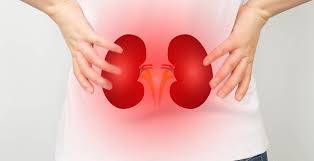In the intricate landscape of human health, few organs are as vital and underappreciated as the kidneys. These bean-shaped powerhouses play a pivotal role in maintaining equilibrium within our bodies, filtering waste and excess fluids, regulating blood pressure, producing hormones, and balancing electrolytes. However, despite their crucial function, kidney diseases often lurk in the shadows, silently wreaking havoc until they reach advanced stages. In this article, we embark on a journey to unravel the mysteries surrounding kidney diseases, shedding light on their prevalence, risk factors, symptoms, and preventive measures.
The Prevalence of Kidney Diseases:
Kidney diseases constitute a significant global health burden, affecting millions of individuals worldwide. According to the World Health Organization (WHO), chronic kidney disease (CKD) affects approximately 10% of the population worldwide, with an increasing prevalence in both developed and developing countries. Moreover, the incidence of end-stage renal disease (ESRD), the most severe form of kidney dysfunction, continues to rise, necessitating costly and demanding treatments such as dialysis or kidney transplantation.
Understanding the Risk Factors:
While kidney diseases can afflict anyone, certain risk factors predispose individuals to their development. Diabetes mellitus, hypertension, obesity, and smoking are among the primary culprits, exerting relentless pressure on the delicate structures of the kidneys over time. Additionally, genetic predispositions, family history, aging, and certain medications can elevate the risk of kidney dysfunction. By recognizing these risk factors and adopting proactive measures, individuals can mitigate their susceptibility to kidney diseases and safeguard their renal health.
Deciphering the Symptoms:
One of the most insidious aspects of kidney diseases is their propensity to remain asymptomatic in the early stages, allowing them to progress stealthily. However, as the condition advances, an array of symptoms may manifest, signaling underlying renal dysfunction. These symptoms may include fatigue, swelling of the extremities, changes in urinary habits, persistent itching, nausea, vomiting, and unexplained weight loss. It is imperative not to dismiss these signs and promptly seek medical evaluation to facilitate timely intervention and prevent further deterioration.
Embracing Preventive Measures:
In the realm of kidney diseases, prevention reigns supreme. By adopting a proactive approach to health and wellness, individuals can significantly reduce their risk of developing renal disorders. This entails maintaining a healthy lifestyle characterized by regular exercise, a balanced diet low in sodium and processed foods, adequate hydration, abstaining from tobacco use, and limiting alcohol consumption. Furthermore, routine health screenings, particularly for individuals with preexisting conditions such as diabetes or hypertension, can facilitate early detection and prompt intervention, mitigating the progression of kidney diseases.
Conclusion:
Kidney diseases constitute a formidable adversary, stealthily encroaching upon the realm of human health with potentially devastating consequences. However, armed with knowledge, vigilance, and proactive measures, individuals can fortify their defenses against this silent threat. By fostering a culture of prevention, early detection, and holistic wellness, we can pave the path towards optimal renal health and empower individuals to lead vibrant and fulfilling lives, unencumbered by the shackles of kidney diseases.
In the journey towards understanding and combating kidney diseases, let us embark hand in hand, illuminating the path towards a healthier and brighter future for all.































